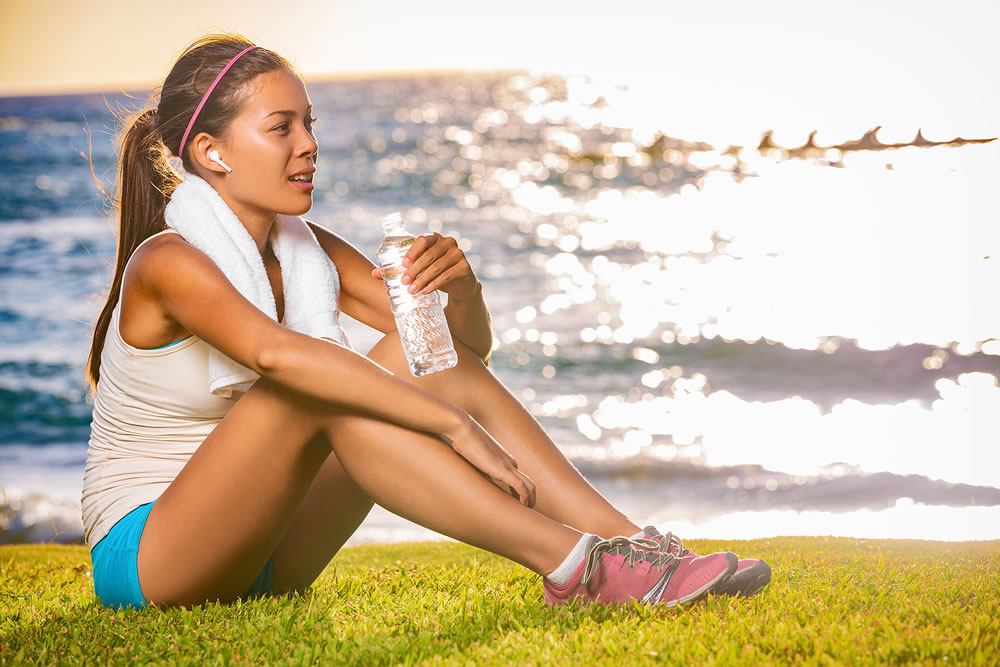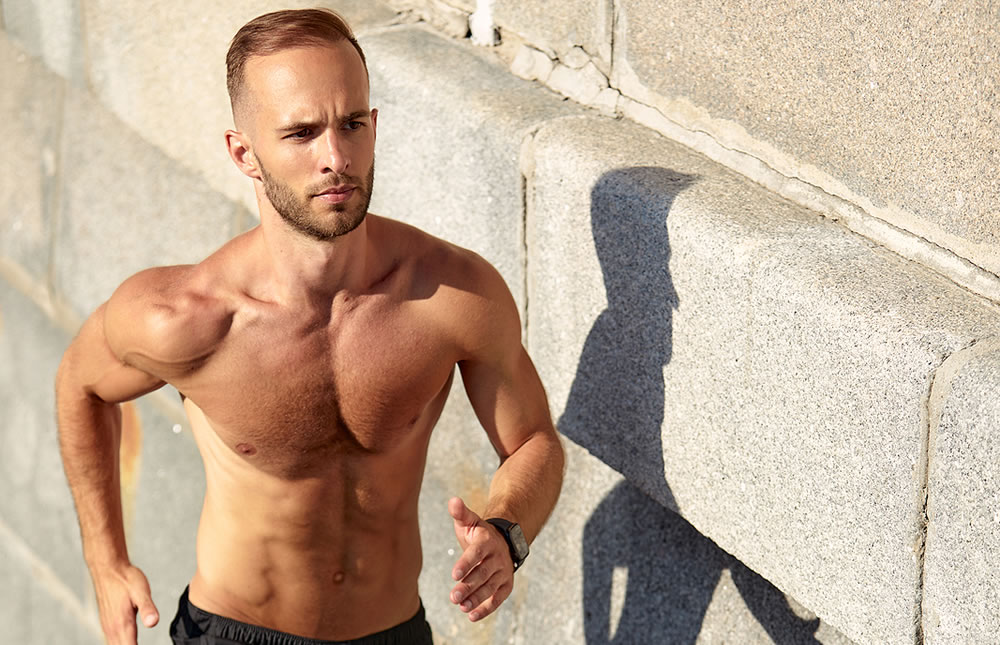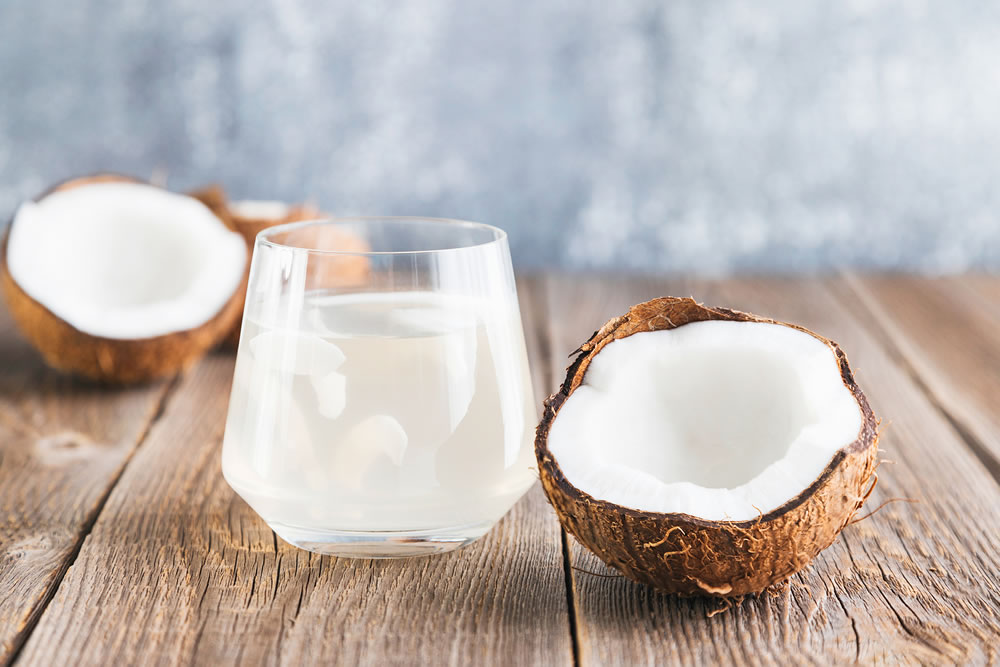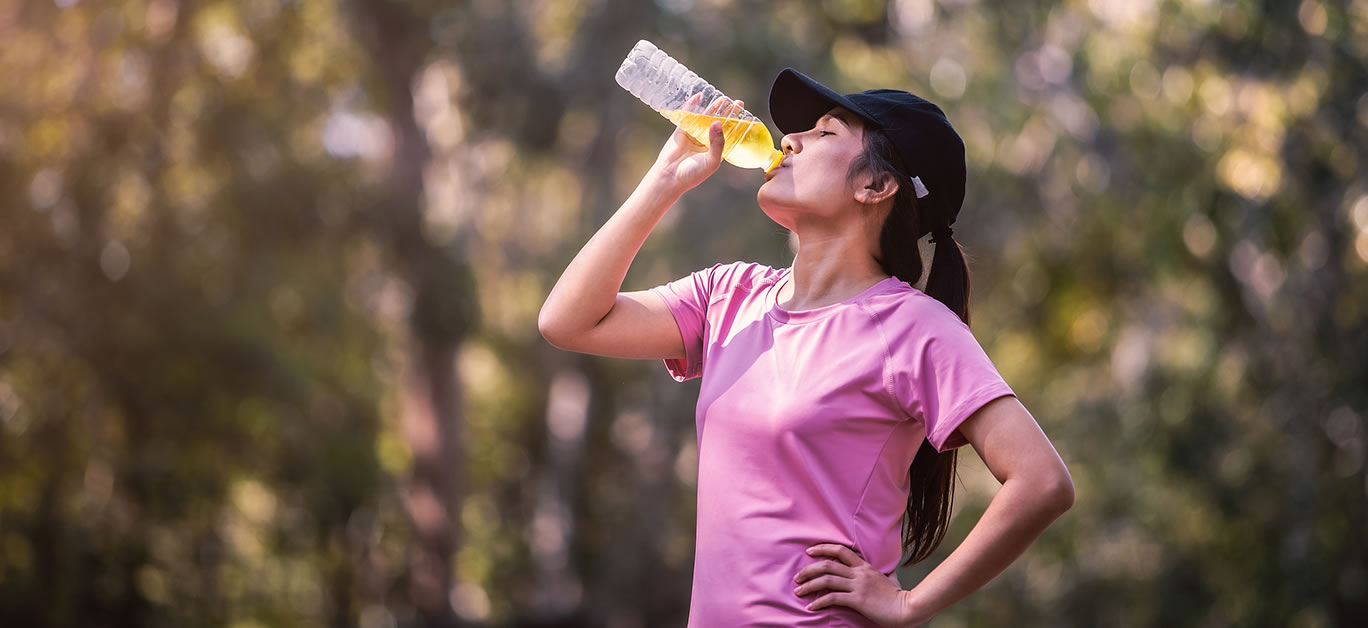If you’re a runner or a regular gym goer, then you’ve likely heard talk of electrolytes bandied around from time to time – but if you’re still in the dark about what exactly they are and how they work then you might be wondering whether or not you should be concerned about them.
As it turns out, they’re pretty important – particularly for those who engage in regular and intense physical activity – and they play a key role in recovery. But contrary to popular belief, athletes and sports people aren’t the only people who need them, as we all have them in our bodies and rely on them for a variety of functions you’ve probably never thought about.
Here, we take a look at all you need to know about electrolytes to maintain optimal health – including just what they have to do with hydration.
What exactly are electrolytes, anyway?
Electrolytes are minerals that facilitate the flow of electrical signals throughout the body and are found within the body’s water content – which around 60 per cent of you is made up of.
They’re required for pretty much every biological function in the body – from nerve signalling to muscle movement – so suffice it to say, they are rather important and an imbalance or lack of electrolytes can cause all sorts of problems. Headaches, fatigue and vomiting are just some of them, but if the problem isn’t addressed quickly then it can even lead to seizures and coma in extreme cases. So, it’s not something you want to mess around with.

There are various different types of electrolytes in the body, the most important of which being sodium, potassium, calcium, magnesium, phosphate and chloride.
Electrolytes play an important role in the body day to day, but they are even more vital when it comes to exercise. Electrolytes are water soluble, which means when you sweat excessively during a full-on HIIT session or spin class, you’re losing them in the process – which is why it’s important to stay hydrated during your workout and why over recent years, sports drinks have come into their own.
You’ll often see athletes using electrolytes to hydrate after an event, as whilst sipping water throughout will go some way towards keeping you hydrated, replacing those lost electrolytes is key to maintaining optimal hydration during and afterwards. Sodium and chloride are particularly important, which is why both tend to be found in the most popular sports electrolytes drinks, and those favoured by the professionals.
The benefits
Healthy nerve function
Our nerve cells – which are known as neurons – rely heavily on electrolytes in order to function efficiently. Nerve cells are responsible for sending signals to various parts of the body and aid in the processes of thinking, acting, moving and feeling. If you’re suffering from an imbalance – whether you’ve been hitting it a bit too hard in the gym without hydrating or are suffering after a particularly heavy night out – you might start to experience symptoms like headaches, muscle cramps, confusion and irritability – so watch out for these warning signs and seek help immediately should they occur.

Regulation of muscle function
In a similar vein, electrolytes are also crucial for healthy muscle function, and this is particularly relevant during exercise. Each time you do a squat, lunge or bench press, your muscles must contract, and without an optimal electrolyte balance in the body, you’ll struggle to complete them. The same applies to cardiovascular exercises like running and cycling, too, with magnesium and calcium particularly necessary for this type of function. If you regularly find yourself having to stop due to muscle cramps during a workout session, you could be low in magnesium.
How to avoid an imbalance
So it’s pretty clear that we can’t get by in life for long without electrolytes – but how exactly can you make sure you’re keeping yours at an optimal level? Well, the good news is that we get electrolytes in our daily diets, from the foods and liquids we consume, and the body does a pretty good job of ferrying them where they need to go. So, as long as you’re drinking sufficient fluids and eating a balanced diet, you shouldn’t need to do too much besides.
If your workouts at the gym or outside tend to be fairly light – for example, Pilates, yoga or a gentle jog – then water alone will be enough to get those hydration levels back to where they need to be, as you won’t have lost many electrolytes during the process.

That said, if you spend a large amount of time training or are a professional sportsperson, you may need to take some extra steps to keep yours in check – and if you enjoy a high-intensity exercise class like spinning then sipping an electrolyte sports drink throughout can help you to recover faster. If your workouts are 90 minutes or longer and involve excessive sweating, then you might also want to consider adding some electrolyte-rich foods to your post-workout meal or snack.
Sources of electrolytes
Some of the best sources of electrolytes are fruits and vegetables – particularly bananas, watermelon, and leafy greens.
Coconut water is a great natural source, while you can also opt for one of the many electrolyte-infused sports drinks currently available on the market.
Generally, consuming these after your workout will help get you back to your best quickly and efficiently – but if you’re planning on running marathon or completing a similarly strenuous and lengthy endurance event then adding an electrolyte powder to your water bottle and sipping it before and during can help to prevent severe dehydration occurring.






















